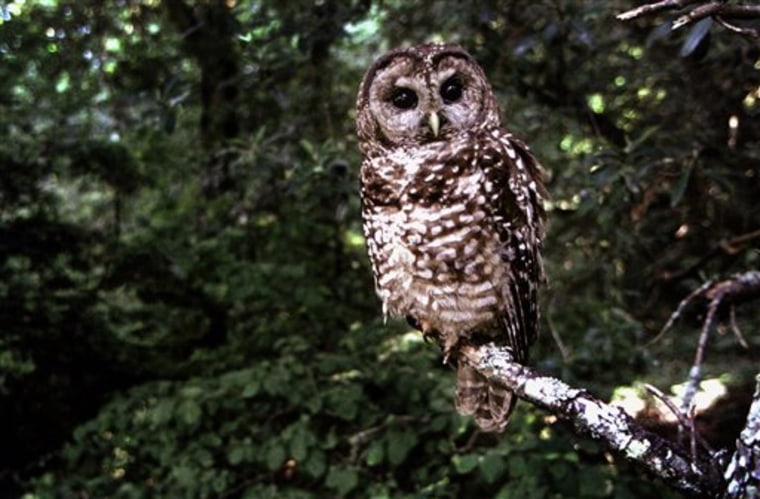President Barack Obama on Tuesday shelved a Bush-era rule that critics say weakened protections for animals and plants protected by the Endangered Species Act.
"We should be looking for ways to improve it, not weaken it," Obama said of the Endangered Species Act. He spoke at an Interior Department ceremony to mark the department's 160th anniversary.
In December, the Bush administration finalized regulations that allow agencies to decide for themselves whether highways, dams, mines and other construction projects might harm animals and plants listed under the Endangered Species Act.
The Bush-era rule reduces the mandatory, independent reviews government scientists have performed for 35 years. It also prohibits federal agencies from assessing a project's contribution to global warming when they evaluate its effect on species.
The Bush administration argued its rule would streamline development requests without harming wildlife.
Presidential memorandum
Obama signed a presidential memorandum to put on hold the regulation until the Interior and Commerce departments complete a review of it.
At least for now, the two agencies will resume full scientific reviews of projects that might harm endangered wildlife and plants.
A conservation group that had sued to overturn the Bush-era rule welcomed the news.
"Obama has swiftly delivered on his campaign promise to reverse Bush’s anti-endangered species regulations," Kieran Suckling, director of the Center for Biological Diversity, told msnbc.com. "He has restored independent, scientific oversight to the heart of the Endangered Species Act."
Other activists praised the move as well. "Undoing the last administration’s damage to the Endangered Species Act will enable scientists to work with federal agencies and ensure that new projects do not harm threatened wildlife," said Andrew Wetzler, director of the Natural Resources Defense Council’s endangered species program.
Those threats extend offshore, noted Vicki Cornish of Ocean Conservancy. "Dozens of marine animals are on the brink of extinction," she said. "Only about 400 North Atlantic right whales, 350 Cook Inlet beluga whales and 1200 Hawaiian monk seals remain, and there is a severe decline in numbers of nesting leatherbacks in the Pacific."
Congressional action
Democrats in Congress are attempting to reverse the rule via legislation. House Democrats wrote a provision into a spending bill that passed last month, leading Republicans to cry foul.
"This is a backdoor maneuver to create vast new climate change powers without any public comment or involvement of the American people," said Rep. Doc Hastings, R-Washington, ranking member of the House Natural Resources Committee.
Hastings on Tuesday also criticized Obama. "Our country is in the midst of a terrible economic recession and the federal government should not be taking actions that could stall vital transportation, infrastructure and energy projects that create new jobs."
The Senate has yet to act on the issue.
Since taking office six weeks ago, Obama has directed his Cabinet to reverse or review four Bush-era environmental and energy rules. Interior Secretary Ken Salazar has shelved drilling plans off the East and West coasts, as well as on federal land in Utah. He also shelved a plan to open up areas to oil-shale development. Those plans will be reviewed, he said.
And Lisa Jackson, head of the Environmental Protection Agency, last month agreed to review whether it should regulate carbon dioxide emissions from coal-fired power plants, portending a major reversal of the Bush administration's policy on global warming.
